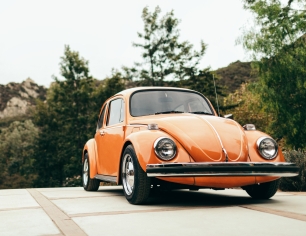What are the main differences between classic cars and modern cars?
Classic cars and modern cars have differences in their design, components, and handling that make modern cars far safer than your average classic car. Features like air bags, seat belts, crumple zones, and a bevy of automated safety technologies have dramatically improved passenger safety — features that may be absent from a classic car, depending on how old it is. But classic cars have a few advantages: they can be easier to repair than a modern, technology-laden vehicle, and may also appreciate in value over time.
Explore Progressive Answers' auto editorial guidelines to find out why you can trust the car insurance information you find here.
Safety of old cars vs. new cars
Modern cars are safer than unmodified classic cars, according to data from the National Highway Traffic Safety Administration (NHTSA). The federal agency found that seat belts, airbags, and crash avoidance technology significantly improve your chances of surviving a crash. Their research also shows that the highest percentage of people killed in crashes were in vehicles from 1984 and older.
Seat belt laws vary by state, and if seat belts didn't come installed in an older car (generally those made before 1965), the driver may not legally have to fit the vehicle with them. But seat belts and other safety features like airbags, electronic stability control, and lower anchors and tethers for children (LATCH) systems are mandatory in new cars.
What makes modern cars safer versus classic cars?
Automotive safety improvements over the years have saved numerous lives. Seat belts started appearing in the 1960s. In the decades since, airbags, anti-lock braking systems (ABS), and better crumple zones that help protect occupants during a collision have become standard. Crash avoidance technology and driver alerts in modern cars also protect lives on the road. Newer vehicles also tend to absorb bumps, minimize noises, and offer adjustable driving positions for better access to the controls.
Can a classic car be made safer?
While seat belts can usually be added, other effective modern safety components like crumple zone improvements and airbags generally can't be added to a classic car. But there are upgrades and measures classic car drivers can take to help lower their risks on the road. These steps include:
- Performing regular maintenance on the vehicle
- Making sure you have modern, high-quality tires and brakes
- Investing in modern halogen or LED lights
- Limiting your drive time
- Installing a backup camera
- Upgrading to an electric power steering unit
- Taking an advanced driver safety course
Learn more ways to modernize a classic car.
THE PROS OF A CLASSIC CAR
Since they lack modern tech and safety features, classic cars have a more hands-on driving experience, and they can be easier to work on yourself. And while newer cars will depreciate with age, classic car values tend to appreciate due to supply and demand, especially for well-maintained ones.
Are older cars more durable than new cars?
Although newer vehicles are safer than classic cars, there's an ongoing debate over durability. Classic car proponents argue that older cars were designed to last a long time with parts that can be fixed or replaced easily and inexpensively. New cars are filled with electronics requiring special expertise and diagnostic equipment when they malfunction.
On the other hand, technologies like onboard diagnostics have made it easier to identify problems with a vehicle. Additionally, a 2021 J.D. Power vehicle dependability study tested 177 different problems and found that cars and trucks have grown more reliable over the past decade.
Buying classic vs. modern cars
Buying a classic car, like buying a used car, can be more intensive than the steps to buy a new car. Finding a reliable classic car will require heavy research into the specific vehicles you consider. If safety is your priority, buying a new car is likely a better fit. However, a classic car can be more than just a vehicle to get you around, especially if it's a collectible or second vehicle you want to spend your time restoring.
You should also consider what kind of insurance you'll carry. Classic cars driven daily will need standard auto insurance, but those only driven on occasion may qualify for classic car insurance, which tends to provide more coverage for less money.
Learn more about if you should buy a classic car and how classic car insurance works.

Get a free quote for classic car insurance today
Learn more about classic car insurance policies.









